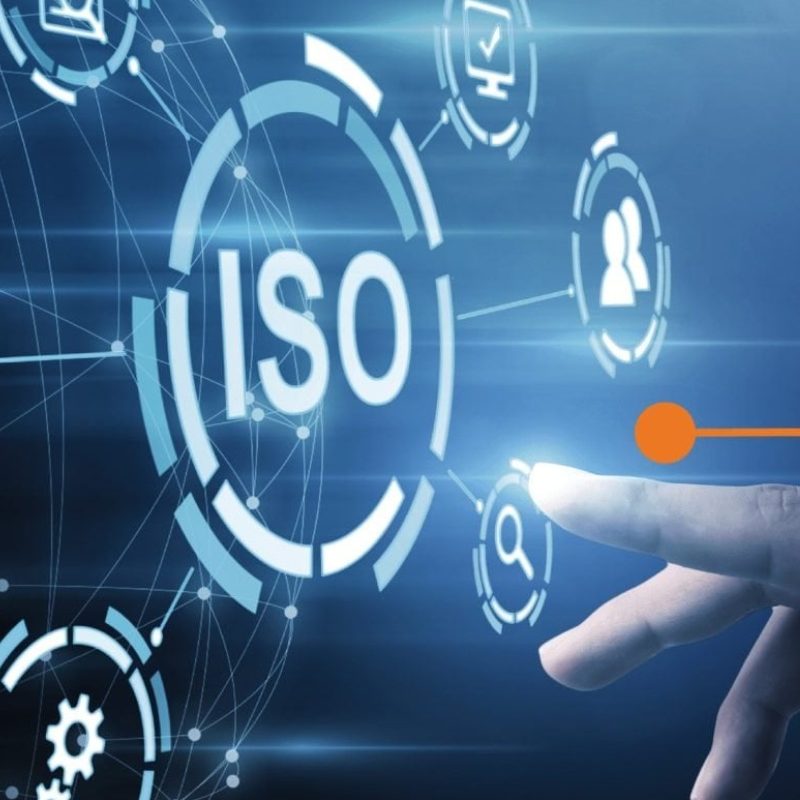
Quality is critical to our success: it is integral to and underpins all of our processes. We manage our activities and associated resources as a series of planned processes to produce the right assembly, at the right time and with minimum wastage.
Our individual processes are structured into a documented quality management system, known as our business management system (BMS), which meets the requirements for BS EN 9001:2015 and BS EN ISO 13485:2016. We are committed to the continuous improvement of the products and services we provide, whilst also driving forward the effectiveness of our BMS.
Our management team drives compliance with all statutory, regulatory, legislative and contractual requirements — and we provide an internal environment in which our people are fully involved in achieving our quality objectives.
EMS always offers automated optical inspection (AOI) of all SMT components and production batches — including component package recognition, part number check and solder joint inspection. Inspection is carried out to IPC-A-610 Class 2 as standard, with Class 3 available on request.

We depend on our customers and are committed to supplying them with a high-quality service that conforms to their requirements. Our aim is always to meet or exceed our customers’ expectations.
The Management Team are committed to maintaining compliance with all statutory, regulatory, legislative and contractual requirements. We will provide an internal environment in which our people are fully involved in achieving our quality objectives.
We aim to recruit & retain highly motivated, competent people. Our people are our most important resource. We encourage their full involvement to develop their abilities for the benefit of the individual and the company.
We will manage our activities and associated resources as a series of planned processes to produce the right assembly, at the right time with minimum wastage, while seeking to maximise efficiency. Our individual processes will be structured into a documented Quality Management System, referred to internally as the Business Management System, or BMS, which meets the requirements for BS EN 9001:2015 that are listed within the scope of our certification.
We are committed to the continuous improvement of the products and services that we provide and to the effectiveness of our Business Management System. We will set clear quality objectives and monitor our progress towards their successful achievement.
We will measure our performance in key activities and use the data collected to make informed and effective decisions on how to improve our processes.
An organisation and its clients, suppliers and collaborative business partners are interdependent. We will seek to develop mutually beneficial relationships to improve Quality leading to greater reliability, enhanced services and increased efficiency.
Our BMS is externally audited and has been certified as meeting the requirements of ISO 9001:2015 and ISO 13485:2016 for Quality Management Systems. In February 2021 our BMS was audited by NQA to the requirements of ISO 13485:2016 and we are delighted to say that we were awarded accreditation.
ISO 9001:2015 is a globally recognised standard which helps companies develop a Quality Management System (QMS).
Initially certified to the 2015 version in 2019, in January 2021 our annual surveillance audit found no discrepancies and commended our improvement initiatives.
A copy of the certificate can be downloaded from the following link.
ISO 13485:2016 is a globally recognised standard which helps companies develop further their existing Quality Management System (QMS) in support of the Medical Devices regulations and manufacturers of medical devices.
The additional focus that this standard provides is on traceability, process control and risk management.
In March 2021 we gained certification to this standard
A copy of this certificate can be downloaded from the following link.
IPC standards provide customers with a clear benchmark for acceptability of Electronic Assemblies, broken down into classes. As standard, EMS produces all assemblies to Class 2 —with Class 3 available on demand to suit customer requirements.
EMS staff members are trained as Certified IPC Specialists.
As part of EMS’ commitment to continuous improvement and quality, we certify staff to IPC-A-610 (Acceptability of Electronics Assemblies). This standard provides:
As part of EMS’ commitment to continuous improvement and quality, EMS certifies staff to IPC J-STD-001 (Requirements for Soldered Electrical and Electronic Assemblies). This standard provides:
In addition, if your company uses J-STD-001 — or is considering its adoption — you can use the certification program to address the standard’s training requirement.
As part of EMS’ commitment to continuous improvement and quality, we work towards IPC/WHMA-A-620 (Requirements and Acceptance for Cable and Wire Harness Assemblies).
This standard provides acceptability criteria for crimped, mechanically secured and soldered interconnection and the corresponding lacing/restraining criteria associated with cable and harness assemblies.
All products supplied by Electronics Manufacturing Solutions Limited (EMS) comply with the substance restrictions of the Restriction on Hazardous Substances Directive 2015/863/EU (RoHS 3).
This statement certifies that Electronic Manufacturing Solutions Limited (EMS) products do not, to the best of its knowledge, contain substances in excess of the Maximum Concentration Value (MCV) as outlined in the directive RoHS 2015/863/EU in force June 4, 2015.
The information provided in this document and disclosure is correct to the best of Electronic Manufacturing Solutions Ltd (EMS) knowledge, information and belief at the date of its release.
EMS’ products (assemblies) are classified as articles that are not intended to release substances under normal or foreseeable conditions of use. Therefore, we are not directly required to register the substances used in their manufacture. However, we do recognise the REACH regulation requires us to communicate with our supply chain in order to ensure our products are compliant.
To the best of our knowledge, all of the articles supplied by EMS are compliant with REACH EC1907/2006 & ECHA/PR/18/11 and do not contain any substances of very high concern (SVHCs).
EMS’ policy regarding the ‘Conflict Minerals from Democratic Republic of Congo’ Dodd-Frank Act.
The Securities and Exchange Commission (SEC) recently adopted rules which require publicly traded organisations to disclose the use of conflict minerals annually to the SEC.
As a UK company, EMS does not report to the SEC, is not a publicly traded organisation and does not manufacture or contract to manufacture as defined by the regulations. Our business activities are, therefore, not in scope — although we recognise our customers may be required to file reports with the SEC dependent upon their location and the nature of their business.
At this time, we do not have a full picture of conflict minerals in the components EMS supplies on its assemblies and when we have made enquiries with vendors, many are currently reporting that the articles they supply are ‘undetermined’ within the meaning of the regulations.
EMS supports the objectives of the regulations and will endeavour to provide further information to our customers as it becomes available.
EMS realises it has a responsibility to control its environmental impact — for the environment itself as well as the associated benefits of employee awareness and overall efficiency improvements for EMS.
EMS has and will continue to reduce its environmental impact by:
EMS is not currently certified to ISO 14001 and does not run an environmental management system at this time. However, EMS realises and accepts the benefits that such a system could provide. EMS will continue to work to reduce its environmental impact and assess the appropriate time to review this status in the future.
Electrostatic Discharge is the rapid movement of a charge from one object to another. When this occurs, it is known as an ESD event.
Without the correct controls to protect sensitive electronics, an ESD event can cause significant damage — which may not be seen or discovered until weeks or months after the event.
EMS has two internal ESD Coordinators who are trained in accordance with ESD S20:20 & BS-EN-61340 standards. Support and training are carried out by the quality department which:
All of EMS’ employees are trained by the quality department, with the audit programme being reviewed and developed to reflect the evolving and developing setup of EMS.
Electronic Manufacturing Solutions Limited (EMS) statement regarding Modern Slavery.
Under the UK Government guidelines, concerning who needs to publish a statement, EMS is not currently required to do so;
However, we recognise the needs of our customers, and we will do all we can to support them. EMS’ Ethics Charter outlines our principles that govern our general business as well as our supply chain, including;
In choosing its partners, EMS is careful to maintain high requirements regarding honesty and respect for human rights.
EMS’ default position, when selecting suppliers is to use reputable suppliers and franchised sources. This means they have direct relationships with the manufacturer. The majority will run a UK office, and be of a size that requires them to publish a statement. The manufacturers they represent are generally international businesses supplying products across the globe, so their supply chains will be under scrutiny from a range of sources.
EMS cannot guarantee the supply chain is slavery free, but we believe that the nature of the suppliers we deal with and the manufacturers they represent, provides the correct method for EMS to control our supply chain and support the identification and eradication of modern slavery.
